One Year Later | The Killing of Patrick Lyoya in Grand Rapids, Michigan
How did we get here? What has changed inside our city and our communities? How can we continue to heal and make positive changes? And where do we go next?
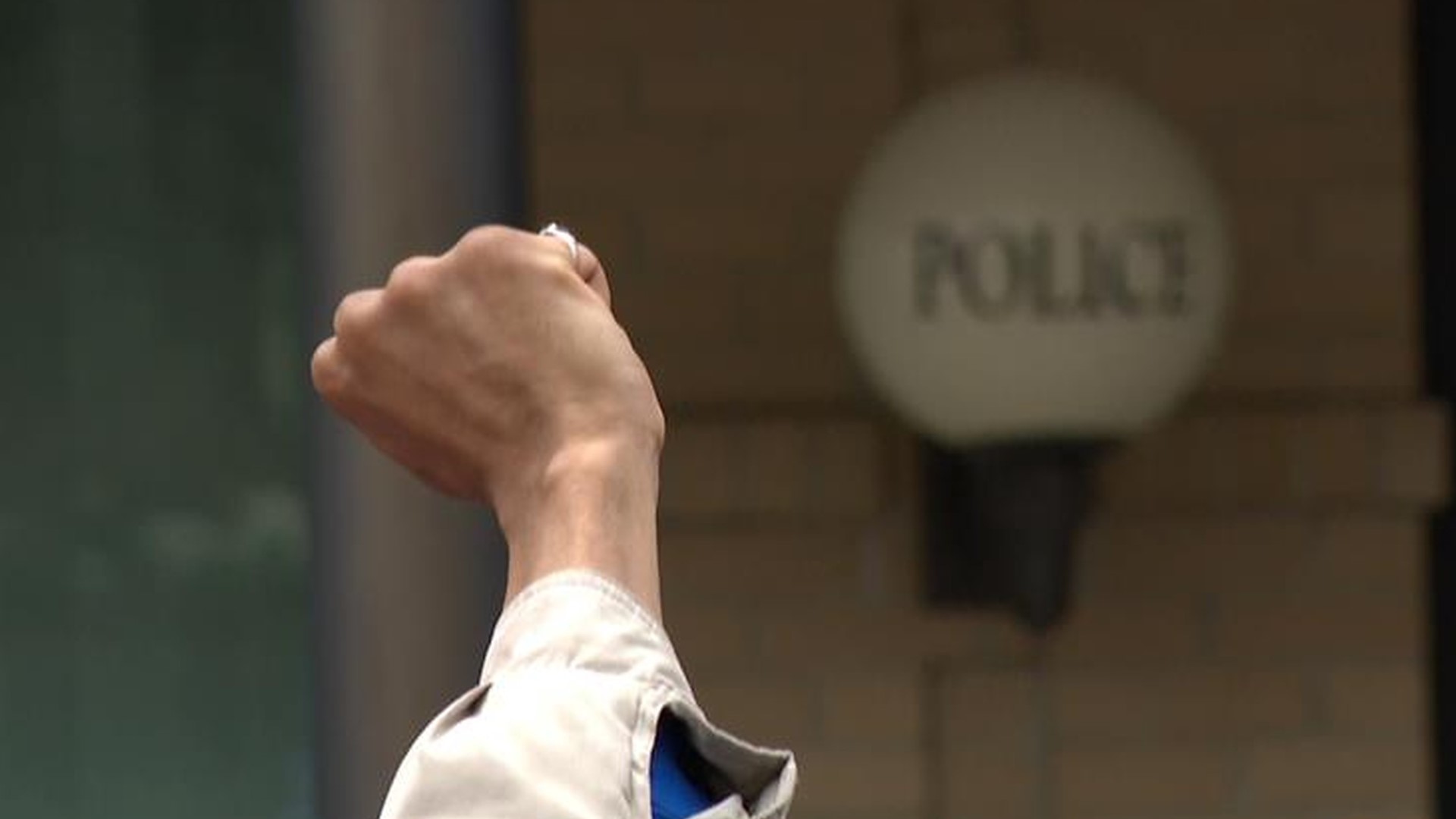
How Did We Get Here?

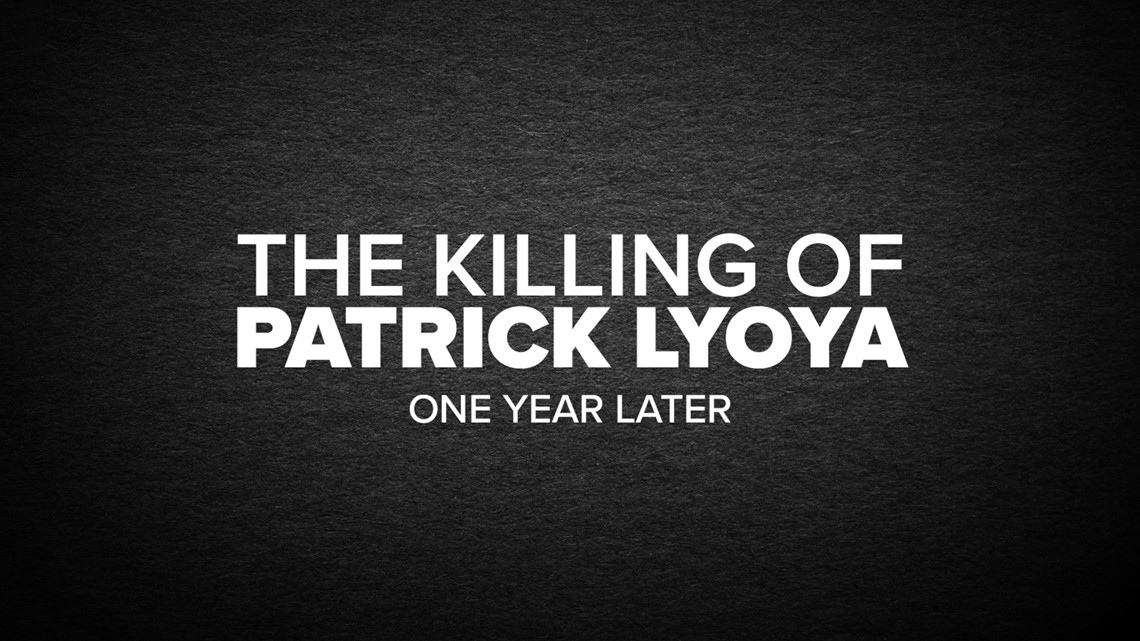
It's been one year since the death of Patrick Lyoya at the hands of a Grand Rapids Police Officer.
Since then, a lot has changed within the community and the way the city looks at policing.
How did we get here? What has changed inside our city and our communities? How can we continue to heal and make positive changes? And where do we go next?
We sat down with Patrick Lyoya's family, city leaders, those who spent months making their voices heard and Grand Rapids Police Chief Eric Winstrom to look at what has been done.
But before we move forward, let us show you how we got here.
Warning: some of the contents below may not be suitable for all audiences. Reader discretion is advised.
A Timeline of Events

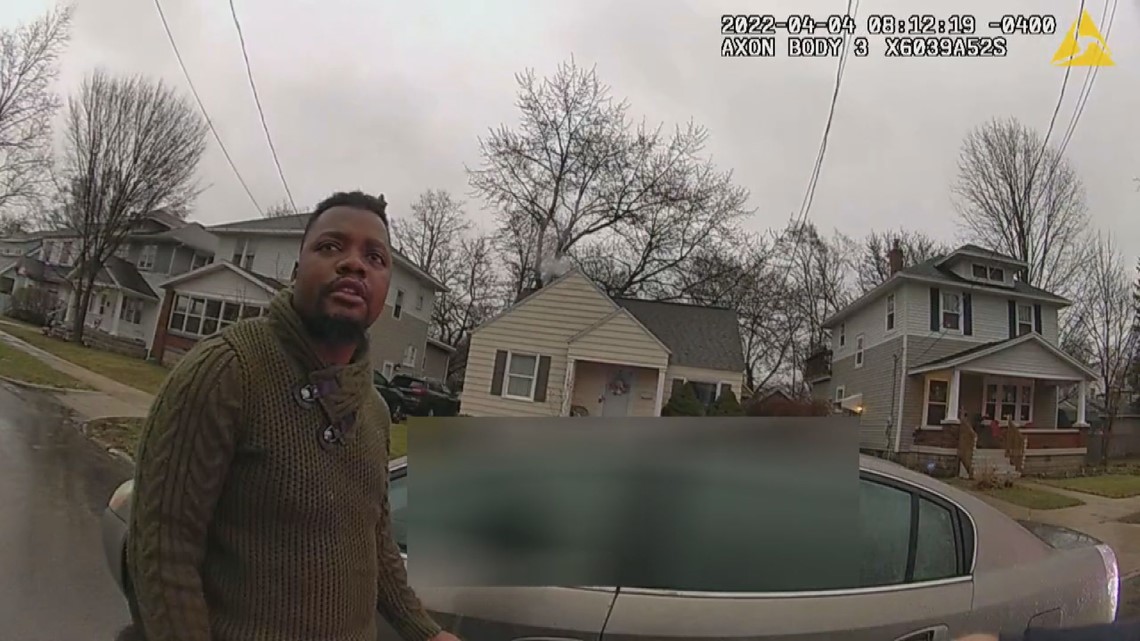
At 8:11 a.m. on April 4, 2022, a Grand Rapids Police officer pulled over a tan Nissan Altima near the intersection of Griggs and Nelson SE.
Christopher Schurr pulled Patrick Lyoya over, who was driving with a friend in the passenger seat. Lyoya was a 26-year-old refugee from the Congo.
Lyoya got out of his vehicle and disregarded the officer's commands. After a brief physical struggle and fight over the officer's taser, Schurr shot Lyoya in the back of the head.
This begins a nearly 3-minute (2:38 exactly) struggle between the two, ending with Officer Schurr shooting Lyoya in the back of the head.
That same day, the investigation is turned over to Michigan State Police. City leaders gather to tell the public what had happened.
A little more than a week later on April 13, the dashcam, bodycam and video shot by Patrick's passenger in the car are released to the public.
Patrick Lyoya police shooting video from all angles
But for many, it's not enough. People took to the streets of Grand Rapids to make their voices heard.
Nearly 3 weeks after his death, on April 22, 2022, Patrick Lyoya was laid to rest alongside his family, friends, community, and civil rights leaders.
The Rev. Al Sharpton, a nationally known civil rights leader, pastor, and talk show host, gave the eulogy at Lyoya's funeral.
“Is this Michigan.. the Michigan that just not long ago you failed to convict men that threatened to kidnap the governor. Now you’re going to protect the name of a policeman that shot somebody in the back of the head? Is this Michigan 2022 or Mississippi 1952,” Sharpton said during the funeral inside the Renaissance Church of God in Christ in Grand Rapids.
Not only were there calls for justice made at the funeral, but others spoke about what Patrick Lyoya meant to them and the community.
“He was a brother. He was a son. He was a friend,” said Bethlehem Shekanena. “He was a hard-working American. He was a proud Congolese man who cared for his family and cared for those around him.”
Shekanena said America is supposed to be the land of the free and a welcoming place for all, but that did not ring true after Lyoya was gunned down in Grand Rapids.
Fast forward to April 27, 2022, Grand Rapids City Commission meetings flooded with community members demanding the officer's name be released and charges be brought forward.
It would take weeks of public pressure for GRPD Chief Eric Winstrom, who was just over a month into his role as chief, to publicly identify Christopher Schurr as the officer involved in Patrick's death.

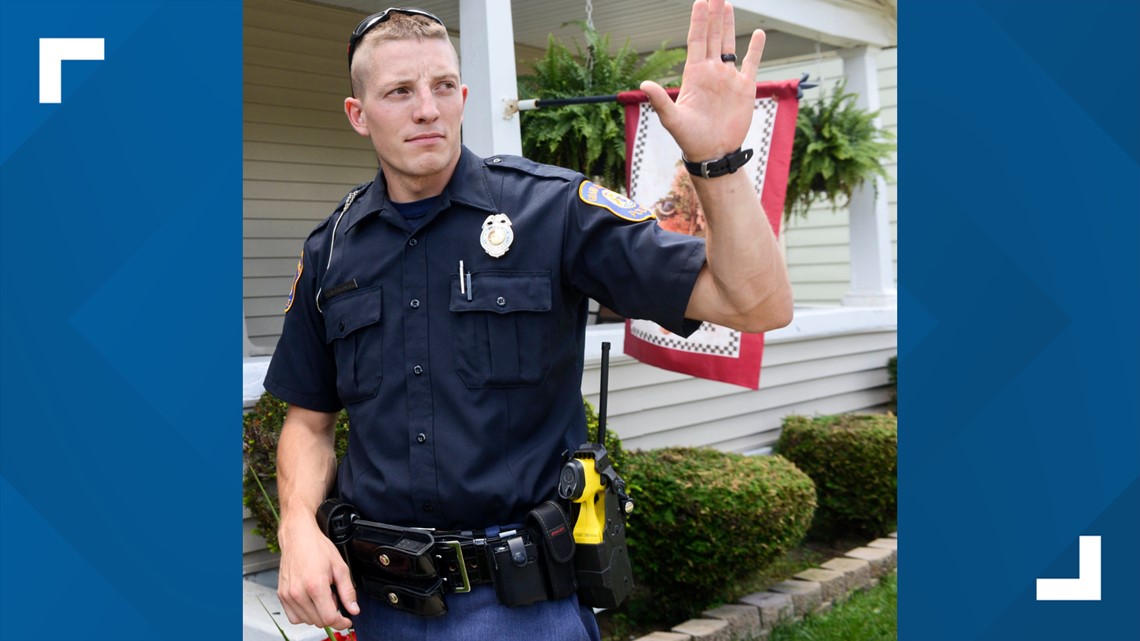
Schurr, who had been with the department since 2015, was later charged with second-degree murder in the death of Patrick on June 9, 2022, and fired from the force just one week later.
The NAACP Grand Rapids branch agreed with the decision to charge the officer, and shared this statement:
"There have been too many incidents where people of color have been killed at the hands of law enforcement, whose top priority should be to protect and serve all citizens. Although this is a step in the right direction, we hope that all involved in this next phase will operate without bias and ultimately, Officer Christopher Schurr will be convicted for his heinous actions."
The Lyoya family filed an excessive force lawsuit against the city and the police department in December 2022.
Schurr is expected to stand trial this October.
Who was Patrick Lyoya? A Son, Father and Friend

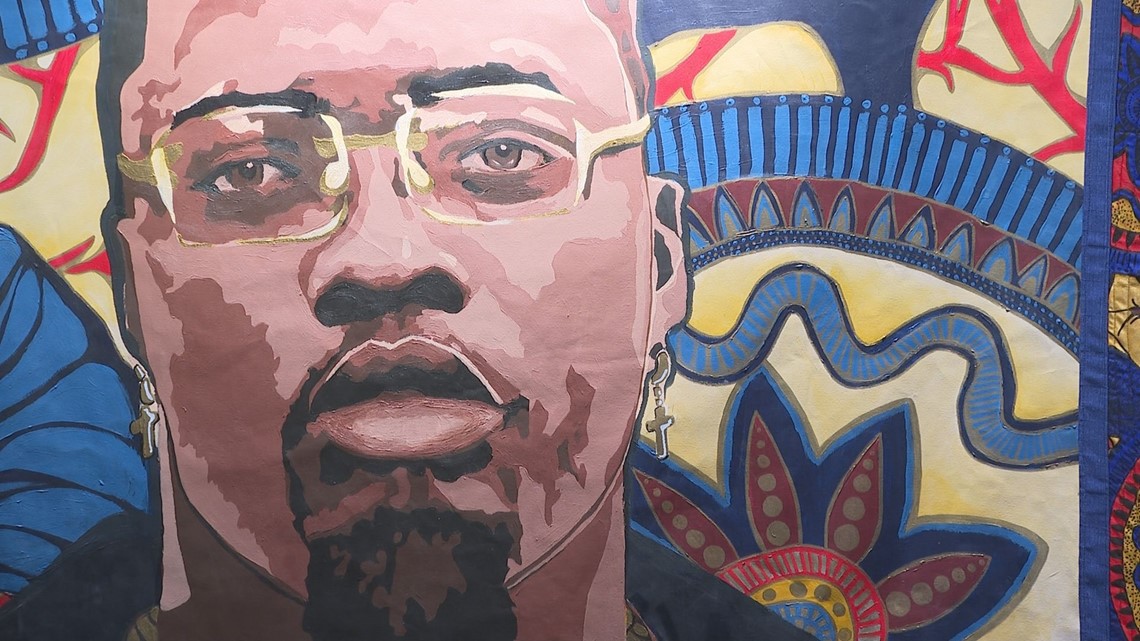
Patrick Lyoya was relatively new to Grand Rapids.
He and his family emigrated to West Michigan from the Democratic Republic of the Congo in 2015.
Peter Lyoya, Patrick's father, said he and his family left Central Africa in search of a safer life with more opportunities in America. Lyoya attended school in Lansing before moving to Grand Rapids.
Lyoya was a father of two, a brother and a son.
Patrick Lyoya's father, Peter Lyoya, spoke through an interpreter and said he wants justice for his son.
"The pain is so deep, the bitterness is so deep every time I think about my son leaving us," Peter Lyoya said.
"Amazingly, that man is still free. He is at home with his wife and children, while Patrick is buried. Patrick is dead."
Tuesday, on the anniversary of Patrick Lyoya's death, Peter Lyoya and other family visited his grave to mark the day.
"Today, we just came from the cemetery. We want to put flowers with the entire family, his mom and his sibling. And we pray," Peter Lyoya said through an interpreter.
"Patrick is my firstborn son. And every time when I think about Patrick, and how he was murdered, it really hurt my heart. It's like a knife in my heart, pinning me down."

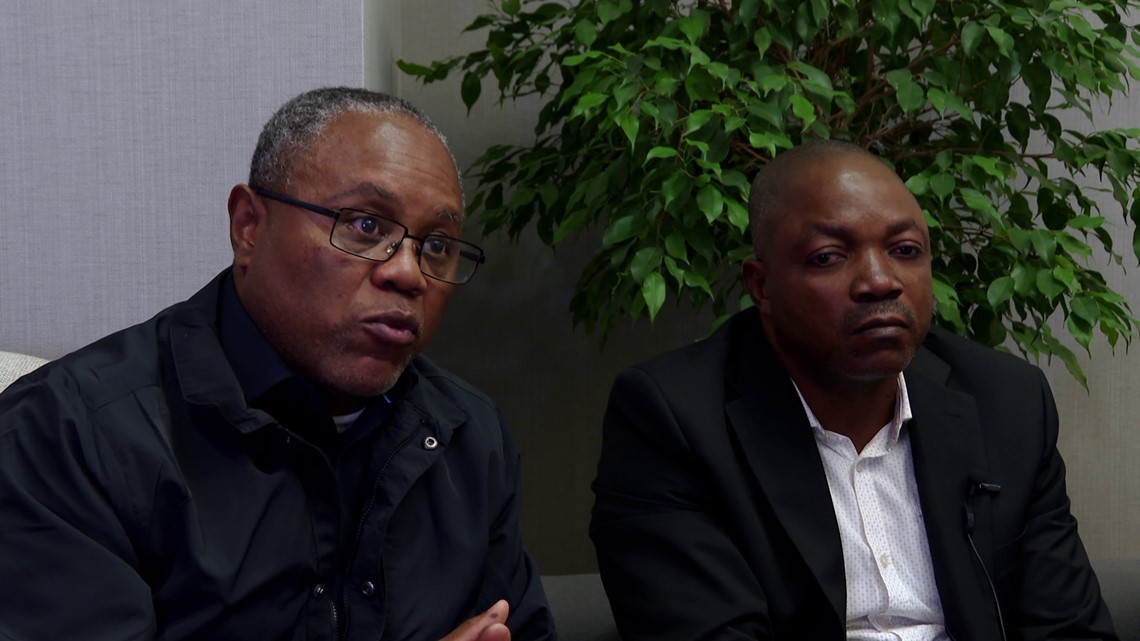
Lyoya also attended church, and according to Pastor Banza Mukalay, he was a constant presence in the pews of the Wesley Park United Methodist Church in Wyoming.
Pastor Mukalay said Patrick Lyoya was like a son to him, and his loss was felt by the entire congregation
"His life meant a lot for us, for our congregation. As a pastor I can say he meant so much to us," Mukalay said.
He was also no stranger to law enforcement.
He had been charged with stolen property, driving while unlicensed and just three days before the fatal shooting, had an active warrant for a domestic violence charge.
Lyoya's family attorneys say those charges were not the cause of the traffic stop on April 4.
Renowned civil rights attorney Ben Crump is representing the family alongside Ven Johnson, a Detroit-area attorney in a separate civil suit filed against Schurr, the Grand Rapids Police Department and the City of Grand Rapids.
Who is Christopher Schurr? Former GRPD Officer Charged with Murder

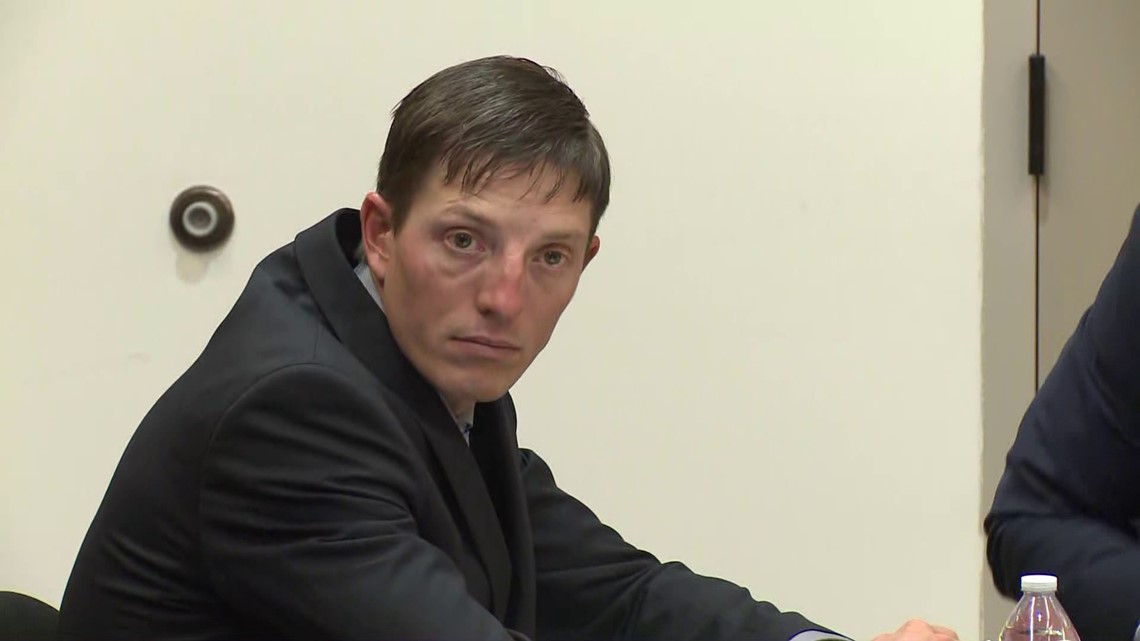
Former Grand Rapids Police Officer Christopher Schurr graduated from Byron Center High School and later joined the Grand Rapids Police Department in 2015. He was assigned to the south service area.
After the shooting, he was put on paid administrative leave.
Grand Rapids Police Chief Eric Winstrom filed an unreasonable force complaint against Schurr on the day of the fatal shooting, and Schurr was later fired.
Schurr made a statement to the internal affairs unit about the shooting but it was redacted.
He had not made any public statements.
You can view the personnel report below, some of which are redacted.
Before former GRPD Officer John Riley retired in 2015, he met Ofc. Schurr, who had just joined the force.
"I joke, I handed him the baton as I was walking out and he was walking in," said Riley. "Awesome young man who could've done anything with his life but cared enough to make a difference in the community that this was his chosen career field."
With 20 years of law enforcement experience in road patrol on the night shift under his belt, former GRPD Officer John Riley says in his opinion, Schurr's use of deadly force was justified.
"Until you've been in that similar situation, you're just not going to understand because there's nothing in your life or life experience that can draw from being in that position," said Riley.
Riley provided insight into what police officers go through when they make traffic stops.
He explained there's always a certain level of anxiety because there's such an unknown until contact is made between the officer and the driver.
Figuring out how many people are in the vehicle also increases an officer's stress level.
In his opinion, Riley said Schurr did everything "by the book" to try to de-escalate the situation by using various techniques including physical presence, and numerous verbal commands to "stop," "put your hands behind your back," "stop resisting" and "let go of the taser."
"The fact the officer tried to use a non-lethal tool, a taser, is indicative he was trying to peacefully and effectively subdue and detain this man who was breaking the law."
The Grand Rapids-area Fraternal Order of Police (FOP) said the decision to charge Schurr was a "ridiculous miscarriage of justice."
The FOP supported Schurr after the shooting, along with the Grand Rapids Police Officer's Association.
13 ON YOUR SIDE has made multiple attempts to speak with Christopher Schurr through his attorneys but has not yet heard back.
Grand Rapids Police's role, accontability Building Trust
Exactly 25 days into his new position as GRPD Chief on April 4, Eric Winstrom got a call about one of his officers fatally shooting someone on the city's southeast side.
He had no idea that this call would change the course of his job and his department.
Chief Winstrom described the day of the shooting and the weeks following as one of the most depressing times of his life.
In the days following, Winstrom brought Lyoya's family into his office, where he says they shared an emotional conversation about what comes next.
Winstrom fired Officer Christopher Schurr, and the Kent County Prosecutor later charged Schurr with second-degree murder.
"Every time I've made a notification to someone that their family member is killed in an automobile accident, or the victim of gun violence, whatever it is, those are all difficult situations, but to have Patrick's dad and other loved ones in this office with me, and crying with them and dealing with that and know that it's so personal because it was one of our officers that shot and killed him. And that was tough to deal with. And yeah, I would describe it as extremely sad. It got sad or as time went on and depressing because, you know, the sadness that the Lyoya family is going through, you know, the difficult times that Christopher and his family is going through and then just knowing the harm that a city can suffer because of that," Winstrom said.
Despite the tension between the community and the Grand Rapids Police Department, the chief said he was proud of the way his officers worked to keep the peace in the face of outrage.
13 ON YOUR SIDE made multiple attempts to contact former GRPD Officer Christopher Schurr's attorneys for comment. All were unsuccessful.
'Us vs Them' GRPD Addresses Accountability and Transparency

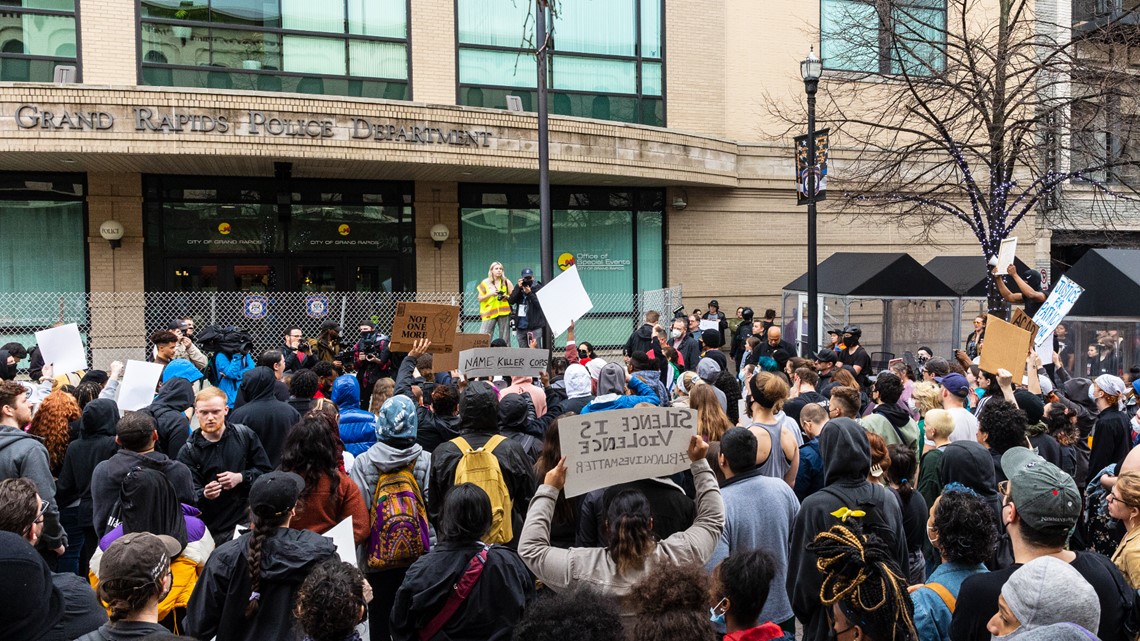
When Chief Eric Winstrom inherited the Grand Rapids Police Department on March 7, 2022, he says the department had an "us against them" feel.
"I don't know if there ever was trust," Chief Winstrom said.
"The police department hasn't been good about communicating and transparency. Maybe hasn't been good with some of the actions that were taken before I got here."
The police department implemented new control tactics and training, but the most important thing, the chief says, is improving accountability and transparency.
Since the shooting death of Patrick Lyoya, along with other officer-involved shootings since, the chief says he wants to rebuild trust in the community by improving accountability and transparency.
"My goal is to get video of every shooting as soon as possible and that's just a trick of getting with the prosecutor and getting with the state police and saying, can I release this without impacting the criminal investigation. I want to get it out as soon as possible," Winstrom said.
The chief says he wants his department to be known as the gold standard of policing. They brought in outside trainers for constitutional policing, de-escalation, and self-regulation which includes breathing control exercises.
"When you're trying to arrest someone and you do use punches to effect that arrest it's not as effective as other things as control tactics and holds so we're shifting as a department to Brazilian jiu-jitsu," Winstrom said.
Winstrom acknowledges building trust can't be achieved overnight. It takes consistent, ethical behavior and showing the department is doing the right thing over time.
"I want to get to the point where I talk to someone on the street and they're proud of the Grand Rapids Police Department. They're proud to be talking about policing with a neighbor who lives in a different city. I'm proud of my police department. I live in Grand Rapids. That's what I want to get to."
Community Activists Make Their Voices Heard Demanding Change, Accountability & Action

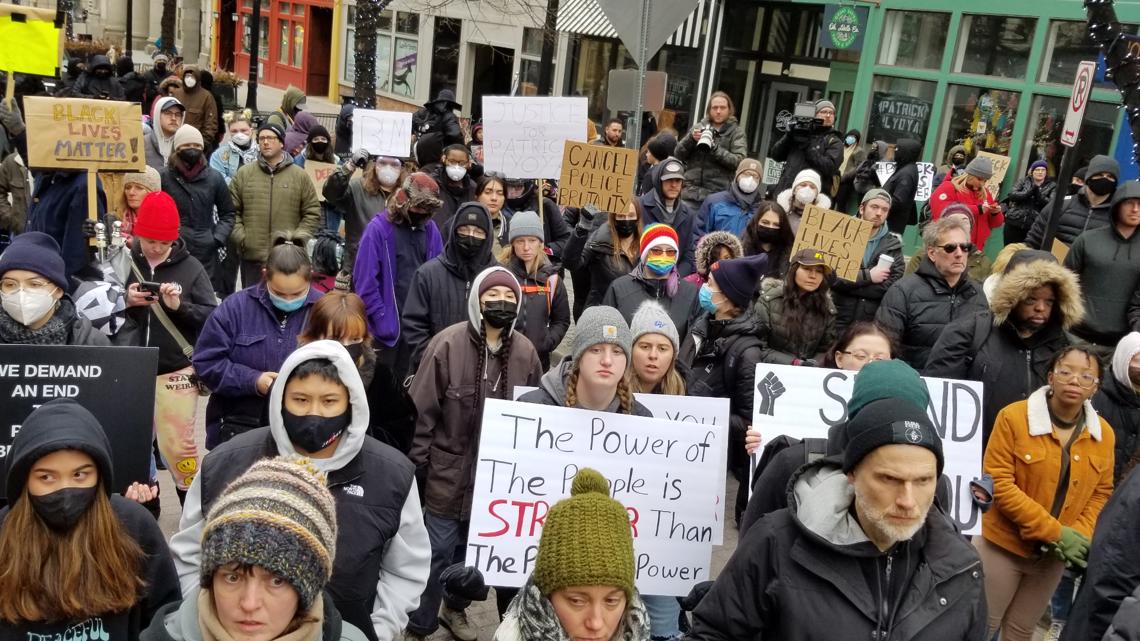
From demonstrations in front of the Grand Rapids Police Department to heated outbursts and disruptions on the floor of the City Commission, many Grand Rapids community members made it their mission to be involved.
D. Jones, a community activist who attended every protest in the city, said change is needed and wants the community to listen and speak up.
Jones said even with tensions high, he was focused on educating the crowds and striving for peace.
"Sadly, it takes people to die in tragedies to happen for people to step up and governments to listen," Jones said.
"I just wanted to just be a strong leader from our community, a voice from our community and somebody that the community can look up to as somebody that can guide us to prosperity but also guide us to change and at least guide us to opportunities for us to be the change that we want to see."
Jones has since been part of several conversations with the city, including taking part in the conversations around the city's participatory budget.
Asked what he would like to see most from the police as the department and the community they serve work together toward healing, he said this:
"I would say really just go into the community speaking to people in the hood, in underserved communities, communities in poverty, and just speaking to them and letting them know that they're just as human, and you guys have things that are in common, the only thing is, that officer has a badge."
Jones said change comes from getting involved and staying involved, whether that's in local government or community organizations.
He plans to continue to be a voice and bring more opportunities for civic engagement for all in Grand Rapids.


1 Year Later How City Officials Responded

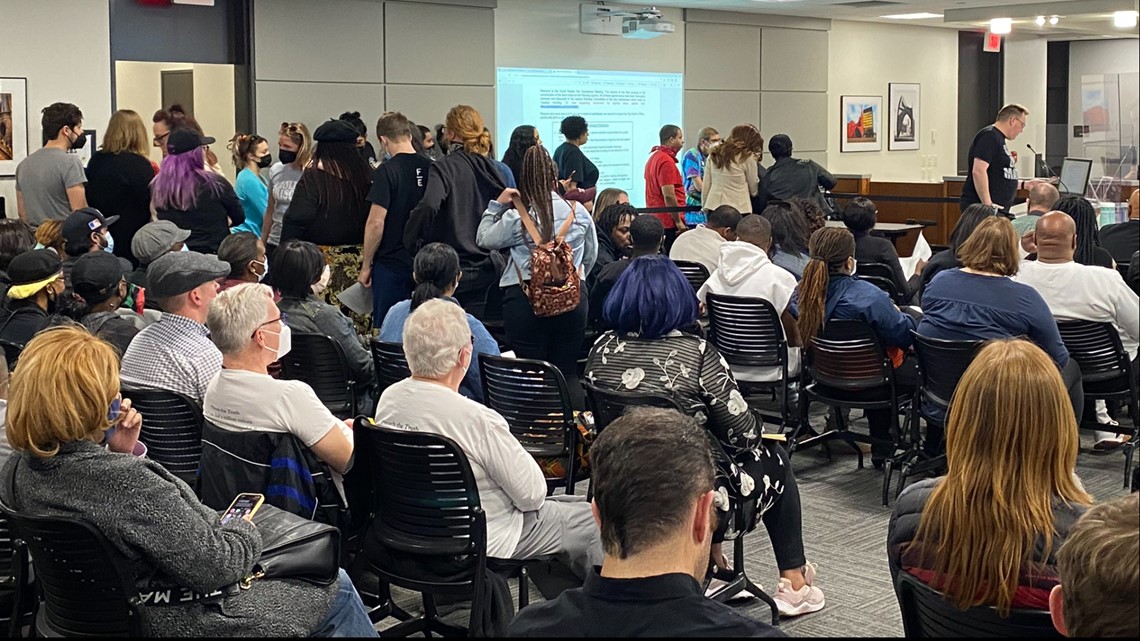
Since that day one year ago, Grand Rapids city leaders said they've been listening and working to rebuild relationships many thought was beyond repair.
City Manager Mark Washington echoed the words of activist D Jones, saying his biggest goal has been reaching out to the communities most impacted.
And that change begins with acknowledging that the problem is real and worth fixing.
"One of the things that we did as a result of the shooting is to double down on building our relationship with the Black community. And the killing of Patrick Lyoya resulted in awareness that there is diversity even within the black community, because everyone is not African American. And so we recognize that there's a distinct difference of need, in terms of the kind of communication and interaction that we have with an immigrant Congolese community was, quite frankly, prior to Patrick's killing was not something that we commonly understood as a community at large," Washington said.
One way the city is making an effort to engage is by inviting the community to be part of the conversation around policing.
"We've also been very intentional in terms of looking at police reform, which we were very committed to prior to Patrick Lyoya's killing but also double down with the sense that we wanted to have training that was based on the experience of community that was community-involved in terms of the design and the delivery," Washington said.
Back in 2020, Washington and the city said they are committed to being T.R.U.E. to our police reform efforts and to working to ensure just outcomes.
- Transparent: Make documents and data available to the community so it can easily see what we do and why
- Responsible: Provide space for internal and external accountability
- United: Partner with the community to work toward lasting improvements
- Equitable: Intentionally remove and prevent unjust practices created by systematic and institutional injustice
The city shared a commitment to accountability, reform, and equitable change.
These initiatives Incorporate the Six Pillars of 21st Century Policing:
- Building Trust and Legitimacy
- Policy and Oversight
- Technology and Social Media
- Community Policing and Crime Reduction
- Training and Education
- Officer Wellness and Safety
You can learn more about the Office of Oversight and Public Accountability's policies here.
13 ON YOUR SIDE asked the city's Director of Oversight and Public Accountability, Brandon Davis, about the program's place to help these types of communities.
He says he's been making change through what he calls restorative justice.
"We're looking at areas of restorative justice, we're saying what type of harms have been caused by the criminal justice system in Grand Rapids but across the nation as well, and what can we do to impact or to reduce those harms," Davis said.
"That includes our expungement program, which we are very proud of that's work, where we help individuals who are previously been involved in the criminal justice system and we help them work towards obtaining a clean up clean criminal record."
The city is hosting its next expungement fair through the Clean Slate Program on May 13.
Trauma Will Resurface How Faith Leaders Heal, Move Forward

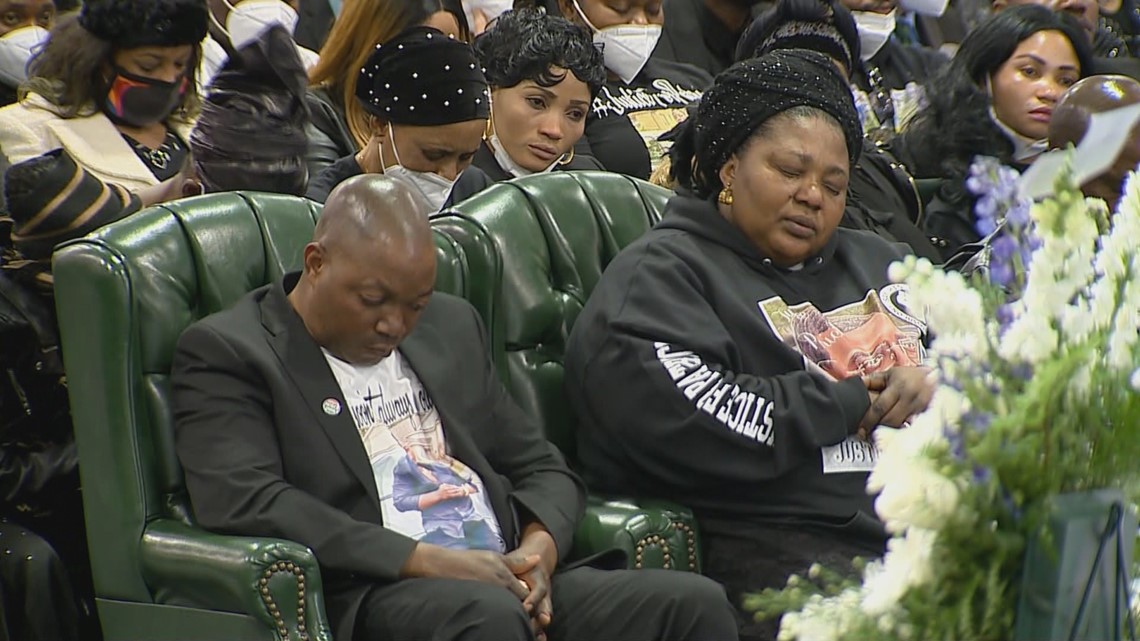
As we inch closer to the trial this fall, the trauma the city, family and community faced is expected to resurface.
Faith leaders from around Grand Rapids have some advice on healing and moving forward.
Senior Pastor at LifeQuest Church Jerry Bishop has seen it firsthand.
"It has had a resounding impact on our entire community," Bishop said.
Decades of unresolved trauma in the Black community poured out after yet another traumatizing event.
But this time, Bishop sees a difference: A younger generation ready for change.
That change, Bishop said, begins with healing. And healing begins with a conversation.
"Patrick may not be alive. But the community being galvanized for police reform is alive and well," Bishop said. "Continuing a community conversation, and having honest discussions facilitates much healing, much organization."
Last year, pastors from multiple Grand Rapids area churches echoed similar sentiments in the wake of Patrick Lyoya's death.
"It's about being transparent. It's about understanding who we are as individuals. It's about understanding that if we learn how to forgive, then we can learn how to love," said Greg Amunga, a Pastor at Uptown Church.
"People ought to know that there's a balance that we need to work towards. And that means everybody got to give up something and everybody got to let something go. And I think balance is important to resolve a community that is in a crisis at this time," said Acts Gospel Ministries Pastor Moses Alexander.
For Bishop, community conversations can be healing for all sides.
"We can engage each other, not being enemies, but being solution driven. And I think that we need to come to the table in here, everybody's opportunity of a solution," Bishop said.
And he hopes to see them continue, especially as Christopher Schurr's trial approaches.
"We're going to have to keep putting logs on the fire of engagement so that the fire of hope doesn't dissipate," Bishop said.
Because in the end, Bishop believes it’s the smallest talks that can make the greatest impacts.
"Everything starts with a conversation, a coffee conversation, a front porch conversation, a congregational conversation, a part conversation, if we remain silent, our hearts will burst."
The Killing of Patrick Lyoya Officer's Trial

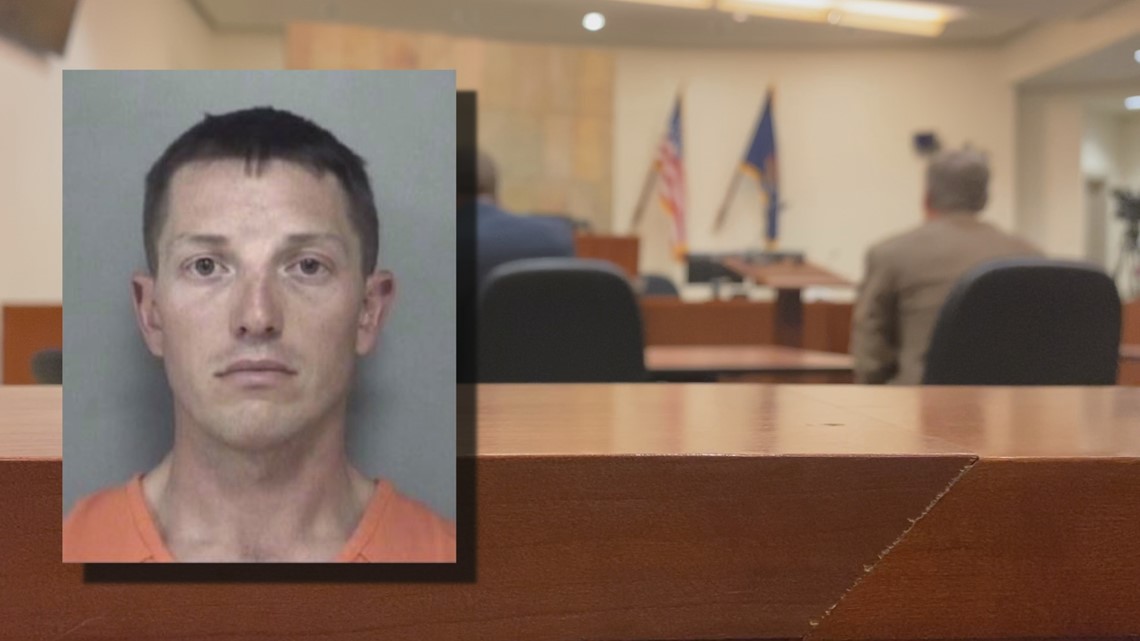
Ex-GRPD Officer Christopher Schurr's trial was scheduled to begin in March, however, his attorneys asked for a delay for more time to prepare.
Matthew Borgula, one of Schurr's attorneys, said he and his team need time to mull over more than 30,000 pages of files in the case.
Borgula says ultimately, the jury will find Schurr not guilty. Kent County Prosecutor Christopher Becker is hoping for the opposite outcome.
Becker, who is prosecuting Schurr in criminal court, previously said there's no question there was a death and an intent to kill. He said it's up to a jury to decide if the use of deadly force was justified.
Schurr's attorneys disagree, arguing the prosecutor was unable to prove the action was unreasonable.
"The evidence is shown here that they cannot prove this beyond a reasonable doubt," Schurr's defense attorney Matt Borgula, said. "There's absolutely no evidence to suggest from anybody who's in law enforcement, who's an expert in the field, that this wasn't justified under the circumstances."
The trial was originally set for March, but the judge agreed to move it back to start on Oct. 24, 2022.
Ven Johnson, who is representing the family of Patrick Lyoya in a separate civil lawsuit against Schurr and the City of Grand Rapids, shared this statement:
"As much as the Lyoya family wishes the case would move to trial as quickly as possible so that Christopher Schurr can be held criminally responsible, the family also respects the American legal system and understands the judicial process takes time. We trust Kent County Prosecutor Chris Becker is doing everything in his power to bring Schurr to justice, and we thank him and his team for their continued efforts."
Lyoya Family Files Civil Suit Claims Excessive Force and Gross Negligence

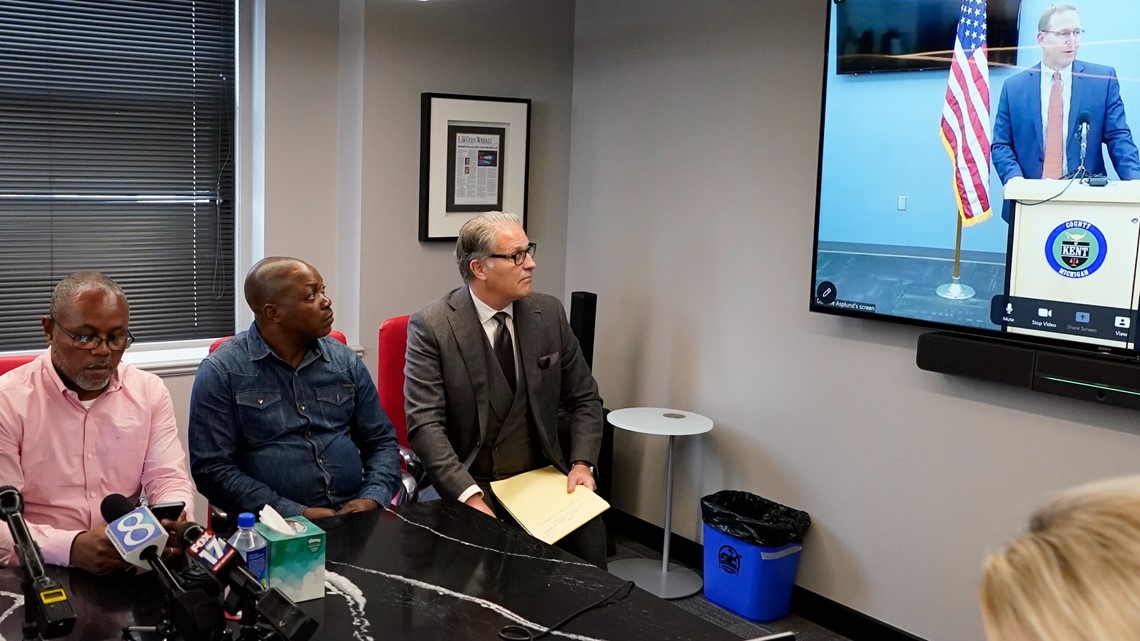
Eight months after the former Grand Rapids Police officer shot and killed Patrick Lyoya during a traffic stop, attorneys representing his family filed a civil lawsuit in U.S. District Court.
The lawsuit seeks two counts of excessive force against ex-GRPD Officer Christopher Schurr in Patrick Lyoya's killing, and claims the City of Grand Rapids is liable for the "atmosphere at GRPD, which influence Schurr to use excessive force on Lyoya."
Civil rights attorney and activist Ben Crump and Detroit-based attorney Ven Johnson say they have "overwhelming evidence" that "proves racial profiling and excessive force" during the traffic stop that was caught on video showing former GRPD Officer Christopher Schurr shooting Lyoya in the back of the head.
The family is seeking damages, a jury to decide any punitive damages, attorney's fees, and to award Patrick Lyoya's estate medical, hospital, funeral, and burial expenses.
"It's clear Schurr unnecessarily escalated the situation involving an unarmed Black man," Ven Johnson said. "At no point did Patrick try to hit, punch, kick or slap Schurr, nor did Patrick ever verbally threaten him. Any claim by Schurr that he was in imminent fear for his life is absolutely unreasonable and untrue."
Patrick Lyoya's father, Peter Lyoya, spoke through an interpreter and said he wants justice for his son.
"The pain is so deep, the bitterness is so deep every time I think about my son leaving us," Peter Lyoya said.
"Amazingly, that man is still free. He is at home with his wife and children, while Patrick is buried. Patrick is dead."
You can read the lawsuit here:
►Make it easy to keep up to date with more stories like this. Download the 13 ON YOUR SIDE app now.
Have a news tip? Email news@13onyourside.com, visit our Facebook page or Twitter. Subscribe to our YouTube channel.

